ECO-Vrindaban Board Meeting Minutes 9-07-2013
ECO-Vrindaban Board Meeting Minutes 9–07-2013
Mission Statement: ECOV (Earth, Cows, Opportunities & Vrindaban Villages) is dedicated to cow protection, sustainable agriculture, self-sufficiency and simple living — all centered around loving service to Sri Krishna, as envisioned by the ISKCON New Vrindaban Founder-Acharya, His Divine Grace A.C. Bhaktivedanta Swami Prabhupada.
Participating Members of the ECOV Board of Directors: Chaitanya Mangala, Krpamaya, Madhava Gosh, Navin Shyam and Ranaka.
Advisors present: Jaya Krsna
1. Prototype house at G7G
The Cabin roof was insulated this past week. It still needs flooring, a window, solar panels, a water catchment system, and potentially a composting toilet. Though it will not likely be fully ready for the October 5th opening, the ceremony will take place.
After hay harvesting is done, Tom and Ray will work on the cabin.
Although funding for the solar panels and floor pavers will come from other sources, more money is needed for labor and other aspects of the project.
WHEREAS: The ECOV Board wishes to complete the prototype cabin in the Garden of Seven Gates (“G7G”) as originally envisioned.
RESOLVED: The Board augments the project budget of the G7G prototype cabin by $3K.
2. Temple foundation plantings
Brikhasanga dug a trench, applied insulation and back filled on the temple building’s foundation.
3. Pine-tree trimming around Temple area
The project will begin after the foundation plantings are completed.
4. Reduce/Reuse Initiative
Navin Shyam will resend the final version of the three posters to Krpamaya to print, laminate, and distribute to the various reusable metal water bottle vendors.
5. Gopal’s Garden School
As requested by ECOV, Ruci and Ranaka are developing a September issue of a school newsletter, focusing on Radhastami activities by the students.
6. Bahulaban barn demolition
This will begin in October after the combination barn closing ceremony and G7G Cabin opening celebration.
7. Bulk grain purchasing
WHEREAS: The ECOV Board wishes to help improve the self-sufficiency of the New Vrindaban community.
RESOLVED: The Board authorizes a line of credit to INV of up to $20K to make bulk grain purchases, to be stored in the bins that ECOV has previously purchased and set up. Precise terms of the arrangement will be worked out in a separate written agreement between Ranaka and a representative of INV management.
8. Budget for Valley Barn maintenance
WHEREAS: The ECOV Board wishes to provide adequate shelter for its cows as well as maintaining buildings in its care.
RESOLVED: The Board authorizes a budget of up to $10K for repairing the roof of the valley barn.
Video of Lilasuka dasi leading New Vrindaban’s 24 Hour Kirtan – June 15th, 2013.
Video of Lilasuka dasi leading New Vrindaban’s 24 Hour Kirtan – June 15th, 2013.
Clouds of Bright Colors Seen Floating above New Vrindaban
Over 3,000 participants came to the very successful second annual Festival of Colors in New Vrindaban on Sat. Sept. 14. There was a vegetarian feast, vendors, chanting, dancing and color-throwing, all in a peaceful, loving, accepting atmosphere.
ECO-Vrindaban: Where Truly Happy Cows Roam Free
ECO-Vrindaban: Where Truly Happy Cows Roam Free
By Madhava Smullen
We live in a world where animals—who are just as alive and feeling as we are—are treated like non-sentient commodities. A staggering nine billion animals are slaughtered every year in US factory farms alone. While they wait for their early death, like prisoners in a concentration camp, they are confined so tightly in battery cages or windowless sheds that they can barely move. They are de-beaked, de-toed, and finally slaughtered, often while fully conscious.
This system is not only incredibly cruel—it’s disastrous for the environment, too. According to a 2006 United Nations report, factory farming generates eighteen percent of greenhouse gas emissions worldwide. Millions of rainforest acres have been cleared for livestock grazing or animal feed crops. And all this for… well, not much at all. While you could feed twenty-two people with one hectare of potatoes, one hectare used to produce beef could feed only one.
Fortunately, there are people who are doing what they can to stop cruelty to animals, to give them their natural right to freedom, and to provide an alternative to factory farming. People at well-known organizations like PETA, the ASPCA, Farm Sanctuary, and Mercy For Animals.
And then there’s those you may not have heard of, yet—like ECOV (an acronym for Earth, Cows, Opportunity, and Vrindaban Villages), an organization that has been quietly operating since 1969 from the green, rolling hills of West Virginia. ECOV is a farm sanctuary nestled in a small community that aims for a pre-industrial agrarian lifestyle in harmony with nature, animals and the earth. It specifically cares for cows, who are one of the most abused species on the planet—nearly 4,000 are killed every hour in the US alone.
As one of the oldest cow protection organizations in North America, ECOV has provided loving care for over 800 cows and bulls over its more than 40 year history. These animals are free to live out their full natural lives in peace and contentment, never seeing the horror of factory farms.
Some were rescues. Starting in the mid-1970s, as they grew their herd, the ECOV staff would visit auctions to bid against commercial dairies; and with the help of donations from animal well-wishers, they were able to rescue cattle from commercial farms, which they still do to this day.
“I remember going to pick out five pregnant Holstein heifers from a commercial dairy near Columbus, Ohio, in 2007,” says ECOV general manager Doug Fintel. “As I walked amongst a hundred cows, I was shocked to see the emotional state they were in. Whenever the breeder walked into the pen, they would run away and cluster into groups, just trying to get away from him. They were out of their minds with fear. I felt like I was in a scene from the movie Schindler’s List, and we were saving them from the gas chamber.”
Doug was delighted to be saving not only the heifers, but their unborn calves too—of which the males would have faced an especially grim future. As veal calves, they would have been confined in pitch dark pens so small that they would be unable to even turn around, resulting in their muscles remaining soft and undeveloped… just so that consumers could enjoy their tender meat. “Whenever rescued cows first arrived on our ECOV farm, they’d be pitiful and uptight, with a wild look in their eyes,” Doug says. “But gradually, they would calm down, and eventually when humans walked near them, they’d be completely relaxed, not even noticing we were there.”
Of course, while rescuing cows is very fulfilling and important work, it’s not a common activity for ECOV. Since cows live to be up to twenty-three years old, and ECOV commits to taking care of cows for life, they take in new additions to the herd very cautiously. Besides, the organization’s main focus is compassionate care for their cows and providing cruelty-free milk, which is integral to the simple village life its community is based upon.
Of course, ECOV cows are milked either by hand or with vacuum bucket milkers, the most subtle type of milking machine on the market today. And the calves are looked after with love and care.
“In factory farms, they completely separate the calves from their mothers at birth and bottle-feed them milk replacer instead of their mother’s milk,” explains Doug. “But at ECOV, the calves drink milk directly from their mother for their first six months, and stay in a comfortable pen within seeing range of her. Then they are gradually weaned and put on a hay and grain diet over a several week period.”
ECOV staff have always been dedicated to giving the best care possible to all of their cows no matter what the conditions, even if it means sacrificing their own comfort. While establishing their community in the early days, staff lived without heating or running water, chopped wood and built fences all day, and still found time to take care of all their cows’ needs.
Meanwhile in the 1990s and 2000s, when funds and manpower became scarce, the core group continued to stick to their mission. Having managed the herd for 34 years and counting, Doug Fintel has given his life to the program, as has ECOV Vice President Mark Meberg (37 years), and Doug’s assistant Ray (29 years). Today, Doug and Ray are the main full-time workers and they are helped by dozens of volunteers each year. Support is still low and things aren’t easy, but the program continues.
During the winter the current herd of of 65 cows—mainly Holsteins, Brown Swiss, and Jerseys—stay in a cozy, clean pole barn built for 240 cows. One thousand round bales of hay, weighing about 600 pounds apiece, are put up for them to eat and it’s good stuff, grown on a 160-acre meadow that’s spread with crushed limestone every three to four years. This neutralizes acidity in the soil and reduces weeds to produce healthier, more nutritious plants for the cows.
The animals are also given twelve tons of grain, salt licks, and plenty of fresh water. Even during the severe West Virginia winters, when the water fountains occasionally freeze, ECOV staff set up tarps and bring out a torpedo heater to thaw them out and make sure the cows get their water.
As well as this five-star treatment in their barn, the cows are also free to go out whenever they desire. “The big difference between us and commercial dairies is that their cows are trapped on a cement floor 365 days a year, and never get to see the light of day,” says Doug. “They never get any fresh air or sunshine, never get to put their hooves in the dirt. But our cows are free to come and go as they please.”
In the summer time, ECOV’s cows get to spend all their time on about 245 acres of lush, green pasturing grounds, where they can eat their fill. Meanwhile, the staff are repairing fences, and spending long hours harvesting the hay for next winter.
When they need it, the cows are given veterinarian and medical care. And when a cow passes away, usually between 20 and 23 years old, they are given special hospice care.
“One of our volunteers, Robert Vincioline, spends a lot of time with them,” says Doug. “He plays peaceful spiritual music for them, places garlands of blessed flowers around their necks, and of course makes sure they have a clean, dry place to lay, and plenty of food and drink. We check in on them regularly, and often more people from the community will come to visit them and offer their respects. The cows here are like part of the family. Rather than being exploited and treated like production machines, they’re taken care of with love and respect.”
After years of holding off on breeding to focus on stability and care for the current herd, ECOV now plans to begin breeding again, with two or three new Brown Swiss cows expected every year. Establishing an ox-drover program is another future goal towards a simpler lifestyle more in tune with the land.
Along with its expansion, the ECOV team will improve its facilities for the animals. Staff are currently planning a new ox-barn with a feed aisle and lie-down area, an isolation pen with a lift for sick oxen, an equipment room, and a gravity-flow grain storage. The environmentally-friendly structure will be built with timber from ECOV’s own woods, and will feature rainwater harvesting and solar panels. A more spacious and guest-friendly new milking barn—in which visitors will be able to view and pet the cows—is also planned.
To maintain a cow protection program of such high standards, ECOV must raise around $100,000 every year. For many years, the organization has struggled just to get by. Now, staff plan to establish a cow protection endowment fund, which would yield a more permanent income base that could be used to pay for ECOV’s annual operating costs—thus providing a stable source of income less dependent on the macro economy. Even with the endowment, however, ECOV staff still expect to rely on charitable donations from its supporters and well-wishers. Yet despite any difficulties, they are happy to continue on, no matter what, for such a worthy cause.
“Our modern consumer society is great at providing material goods, but it’s unsustainable and poor at providing inner peace,” ECOV Vice President Mark Meberg offers in conclusion. “So our mission is to show people an alternate lifestyle that can reduce consumption, and is not dependent on cruelty to animals. Such a lifestyle of simplicity, in association with the calmness of the cow, can bring greater satisfaction than all the trinkets from China.”
Srila Prabhupada Visits New Vrindaban – June 21st, 1976
Srila Prabhupada Visits New Vrindaban – June 21st, 1976.
Excerpt from Hari Sauri’s Trancendental Diary.
Srila Prabhupada’s arrival caused quite a stir in the small Pittsburgh airport. Our fellow passengers looked on with obvious bemusement as Kirtanananda Swami and a group of forty or fifty devotees gathered around the boarding gate, offering him beautiful flower garlands and fanning him with peacock feathers. Happily oblivious to anything but Srila Prabhupada’s presence, the devotees chanted and danced all the way out to the waiting car. Their attire offered a hint of things to come with their dhotis, kurtas and saris matched in some cases with large rubber farm work boots.
Although it was a ninety minute drive to New Vrindaban, the ride was comfortable and as we progressed smoothly along the highway Prabhupada kept up a running conversation. He reflected on the fallen condition of modern man, telling Kirtanananda Maharaja his comparison of the dog’s running on four legs and man’s running on four wheels. He said that the only way to save them was to start with the basics and then after some time, when they become a little purified, give some philosophy. He reminded Kirtanananda that this had been his program right from the beginning. “You have all got this experience. This is the only way. I started this movement on this determination: I’ll give them prasadam, nice chanting, and they will not come? They must come. This was my determination. And I began with this. So this is the only way. Give them chance ‘No talk, please come. Chant and dance with us and take Krsna prasadam and go home.'”
Kirtanananda reflected that it was just ten years ago since he had first met Prabhupada.
Prabhupada gave one of his endearing little sideways nods of assent. “Yes. I never said that ‘You have to give up this, you have to do this.’ Never said. Then gradually ceto-darpana-marjanam. When the heart becomes cleansed, then little. There is no hopelessness. So many people have come, and they are coming. Both black, white, everyone is coming. But you cannot expect that cent percent people will come; that is not possible. But even one-fourth percent people come to this, then it will be successful. Compared to the American population, what percentage we have got? Still they have made some impression, the Hare Krsna movement. Literatures are selling, and they are appreciating, the learned circle. It takes some time, but if we stick to our principles and do not make any compromise and push on-in this way, I have given you instruction, it will never stop; it will go on. It will never stop. At least for ten thousand years it will go on.
“And this movement is meant for these fourth-class, fifth-class, tenth-class men. Not this movement is fourth-class, fifth-class. They are so fallen that they cannot be counted even third-class, fourth-class. Tenth-class of men. Deliver them. Patita-pavana-hetu tava avatara. Caitanya Mahaprabhu’s incarnation is for delivering these classes of men. Caitanya Mahaprabhu never meant to start this movement for high-class brahmanas, sages, saintly persons. No. This class of men — for the all fallen. Don’t be disappointed. Go on, go on. Stick to the principles. When there was no response, I did not know where to live, where to eat. Sometimes at Dr. Misra’s, some time with some friend somewhere. And I was going to inquire the shipping company when the next ship returning to India. Still I was renewing my visa: ‘Let us hope. Let us hope.’ In this way, we started Second Avenue in month of July, I think?”
He recalled the names of the first few young men to join him: Mukunda had been the first, then Hayagriva and Kirtanananda. And there were others who have now left — Jagannatha, Ravindra-svarupa, Carl.
As the car plied along the highway (America seems to me to be one continuous highway) Kirtanananda Maharaja told Srila Prabhupada that some devotee women selling books at the airport today, said that it had been the most demoniac day they had ever had. They were harassed as they sold books. As soon as a traveler stopped to talk to a devotee, some persons were causing problems by telling them not to buy. Maharaja said we get confused with the followers of a Korean so-called spiritual master, Reverend Moon. “It is causing a big stir, these ‘Moon’ people. He has just bought a hotel in New York for five million dollars. But the public is sometimes equating us with him and these other rascals. He claims that Jesus Christ never lived to fulfill his mission, which was to establish the perfect family. They killed him before he got married. So he [Moon] has come, and he has all these wives. At least he used to, whenever any of his disciples would get married, first he would have their wife.”
Prabhupada shook his head in mild disgust.
He settled back in his seat to chant on his beads, occasionally interspersing his soft murmur with conversation. He told Kirtanananda that he is now on the twelth chapter of the the Eight Canto of Srimad-Bhagavatam, exactly half way through. “There is no comparison of this literature,” he told him.
Kirtanananda Maharaja expressed his appreciation. “I think before you came, Bhagavatam was unknown.”
Prabhupada agreed. “Unknown, yes. The Ramakrishna Mission published one Bhagavatam commentary. You know that? Farce. These Ramakrishna Mission people have done the greatest harm to the Vedic culture. Of course it is not taken very seriously, Ramakrishna Mission.”
I agreed that in the West they were practically unheard of. “You made a good point about why although now thousands of American boys and girls are coming to India, no one is going to the Ramakrishna Mission, so what kind of impact has he had?”
Prabhupada said, “But they publicized in India that they have made all, everyone [followers]. In India they were doing like that. ‘Vivekananda Road,’ ‘Vivekananda Square,’ and rascals, they do not inquire even what is Vivekananda’s contribution. In Vrndavana they have got hospital and Ramakrishna temple. Who is going there? This is practical example. In our temple, thousands and thousands of foreign boys and girls are coming, and who is going there? It is because actually, if they did something, they should at least gone there out of inquisitiveness: ‘Oh, where is Vivekananda?'” Then he made us laugh. “Nobody going,” he grinned. “Not even to pass urine there.”
After a short while Kirtanananda produced some cartons of prasadam from the New Vrindaban kitchens — puris, sabjis, samosas and various milk sweets. I thought Prabhupada would just try a morsel to oblige the devotees, but to our delight he had me spread out the preparations and he took a little of each. He enjoyed them and encouraged us to take some. He praised Kirtanananda as a good cook and told us, “So this was my dream, that a place should be there where we can get all nice foods, best foods, of milk. Krsna is fulfilling our desire. Everything’s there. These rascals they do not know how to live or to eat. Intelligence is there, everything is there. Simply for want of training they have become rogues. Make them human beings, your countrymen.”
As we drove the last few miles into the New Vrindaban countryside Kirtanananda Maharaja mentioned that the local authorities, including the sheriff, were becoming very favorable. A judge who had seen Srila Prabhupada on his last visit still keeps a picture of him on his desk. He said the local television had agreed to show Yadubara prabhu’s movie, Spiritual Frontier.
Srila Prabhupada was happy to hear it but told him, “One thing you have missed: how we are preparing all these foodstuffs.”
“In the movie?” Kirtanananda asked. “It was too short how to prepare it?”
“Yes. How from milk in different stages you get this foodstuff, kachauris, singhara, sandesa, rabri.” He gave a little chuckle. “And this channa [dal], if fried, if you prepare nicely with little hing and ginger, then it will exactly taste like meat. They’ll forget. If you give them without telling them, they will think that they’re eating meat. They prepare the semiliquid meat like that. You give them little piece and they will not understand that it is not meat.”
I told him that when we were in Los Angeles Palika had made some bada and it tasted so much like fish that Pusta Krsna Maharaja wouldn’t eat it.
Prabhupada smiled. “With urad dal, you can prepare fishy taste.”
“Someone told me that your Guru Maharaja said that?” I asked.
Srila Prabhupada laughed. “Yes. ‘Anyone who is not taking urad dal, he must be taking fish silently, secretly.'”
As the car came into New Vrindaban’s precincts Kirtanananda pointed out some new buildings, including one under construction next to the existing temple which will house workshops and a large hall for festivals, big enough to hold seven or eight hundred people. Prabhupada was happy to see it. “Oh, much improvement,” he said.
ISKCON New Vrindaban, Moundsville, West Virginia
At least a hundred adults and children welcomed him at the small, beautiful, temple of Sri Sri Radha-Vrindabanchandra at Bahulaban. A marble floor, cut, polished and installed by the devotees, hand-crafted stained glass windows, and exquisitely carved wooden simhasanas, all form a perfect setting for the full moon of Vrindavan, Sri Krsna, and His eternal consort, Srimati Radharani, and in the spiritually vibrant atmosphere Prabhupada took darsana of Their Lordships, Who were resplendently decorated with local wildflowers.
Srila Prabhupada then gracefully mounted his vyasasana, the centerpiece of some exquisitely carved wooden furniture that Kirtanananda Maharaja has had specially made for Prabhupada by artisans in Bombay. It has lions on either side, a lotus-flower shaped base, and a tiered wooden canopy. The back has small peacocks along its rim, and it is luxuriously upholstered in fine, multi-hued silk. Single strands of flowers tipped with red roses hung from the front edge of the canopy, enhancing its beauty.
After a lively kirtana during which Prabhupada played a gong, he gave a short talk. With obvious affection he glanced out at his disciples. “So after two years I think, I have got the opportunity of seeing you and your Radha-Vrindabanchandra Who is so kind upon you. So real happiness is here. Radha-Vrindabanchandra is staying here, and He’s pleased with your service. This is the perfection of life. Keep Krsna always with you and serve Him sincerely, then all happiness will come, without any endeavor.”
He emphasized that economic development does not increase life’s pleasures. Dogs run and we run, but the pleasure is the same; sex on the street and sex in a luxurious apartment give the same level of enjoyment, so what is the need to make an extra endeavor to advance economically he asked. If a rich man gets typhoid it doesn’t mean that his suffering will be any less. So trying to improve one’s standard of living is not the way to happiness.
“Actually there is no improvement,” he told us, “but we think that we have improved. Rather, we have taken so much risk. That requires knowledge, but anyone can understand. Suppose I can eat some quantity of food. Even if I am millionaire, I shall eat the same quantity. Kirtanananda Maharaja gave me so much nice foodstuff but I could take only according to my appetite. One puri, two samosas, that’s all.” Everyone laughed as he went on. “It is not that Kirtanananda Maharaja has given so nice food I shall eat the whole plate; no, that is not possible. I’ll have to eat so much as I can eat. So by improving the so-called standard, I shall eat the same proportion as I am able to eat, not more, not less — and that is destined. When I came to your country I had no shelter, I had no food, no arrangement, but I was eating. And now I have got so many nice sons and daughters, but I am eating the same. So when there was nobody to help me, I was eating, and now you are so many to give me satisfaction, I am also eating. So eating is not stopped, in any condition. That is arranged by God.”
He told us that the Krsna consciousness movement is meant to give a new life to civilization — how to become a servant of Krsna. If this is done then everything will come automatically. He thus encouraged the New Vrindaban devotees to continue serving Sri Sri Radha-Vrindabanchandra, saying that would make their lives successful.
Amid the joyful tones of kirtana Srila Prabhupada departed the temple and was driven to a house that has been vacated especially for his use. It has a few basic amenities, like hot and cold running water and electricity, which are seemingly lacking in other residential buildings of the New Vrindaban community.
Thank You to Devotees from Jaya Krishna das
Dear Brijabasis,
Please accept my humble obeisances. All glories to Srila Prabhupada!
I would like to express my deep gratitude to all the community members and temple devotees who made the Janmastami Festivals, Srila Prabhupada’s Appearance Day and Labor Day weekend a big success. Many pilgrims approached me to express their heartfelt thanks for the experience New Vrindaban offered them.
I will not name each individual devotee herein as I am unable to recall each and everybody who has served so nicely over the last week and do not wish to risk omitting anyone.
I would especially like to thank the Pujari Department for the exquisite dressing of Their Lordships on Janmastami morning – the darshan was mind blowing. Thanks also for the wonderful Flower Outfit at midnight. It was simply overwhelming.
Thank you to those who created the astonishing set up for Srila Prabhupada’s vyasasana on his Appearance Day. At 2 am in the morning of Vyasa Puja, I was thinking that I am the last one wandering around the temple, only to be surprised a small crew of dedicated devotees who were hard at work decorating the vysasana.
Thank you for the hard work in the Kitchen over these days. Dear Community Members, please accept our sincere apologies that we were unable to cook a proper feast on Srila Prabhupada Appearance Day. As a result, we hear with pleasure that some of the extraordinary NV Maharathi Cook Elder’s (heroes) have agreed to take care of Srila Prabhupada’s Disappearance Day feast.
Thank you to the CD department for their hard work in contacting so many donors for the Janmastami Festivals, for the incredible program on the festival days as well as the team spirit they have developed. A number of guests recognized and appreciated the nice cooperation.
Thank you to the Lodge crew and manager who handled all challenges very smoothly over the festivals and made our guests feel comfortable.
A round of applause to the Restaurant Crew who once more managed to properly serve a very large number of guests, keeping them satisfied.
The Palace of Gold crew has done a fantastic service by giving an incredible number of tours. I do not remember seeing so many cars parked around the Palace over the last three years.
The Rose Garden and the flowers around the Palace are currently in full bloom and touch many hearts. Thank you the glorious garden crew for this wonderful gift to Srila Prabhupada on his Appearance Day.
Last, but not least: the Goshalla Team of cow herds has shown their wonderful care by presenting our new baby bull, Pundarikaksa, with his mother Surabhi to our guests on different festival days.
Thanks to all of you for participating in the festivals. Many devotees and Prabhupada disciples (a new record over the last three years) participated in his Appearance Day celebrations in the morning at the temple as well as at his Palace of Gold later in the evening.
I am very grateful that more community members are participating in festival celebrations, contributing to a new team spirit that is slowly developing at the temple.
I request your blessings that I may continue as your servant,
Jaya Krsna das
Community President
ISKCON New Vrindaban
Giri’s Mechanic Shop
(next to Nityo’s house on the road to the old Vrindaban farmhouse)
Giri provides the following auto services:
Brakes, shocks, struts, bearings, bushings, some exhaust welding, starters, alternators, ball joints, tie rod ends, radiators, cv boots and joints AND just about any other mechanical problem that may occur.
Thanks,
Giri
304 843 1765
Festival of Colors Service Opportunity in New Vrindaban – 09-14-13
Haribol
Video of Rupanuga dasa leading New Vrindaban’s 24 Hour Kirtan – June 15th, 2013.
Video of Rupanuga dasa leading New Vrindaban’s 24 Hour Kirtan – June 15th, 2013.
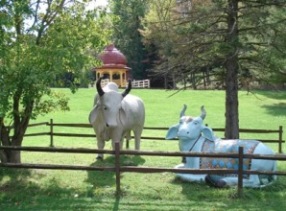
Welcome to Brijabasi Spirit
Thank you for taking the time to visit the New Vrindaban community blog. Think of visiting our blog as making a virtual pilgrimage.
Hare Krishna Hare KrishnaKrishna Krishna Hare Hare
Hare Rama Hare Rama
Rama Rama Hare Hare
"May cows stay in front of me; may cows stay behind me; may cows stay on both sides of me. May I always reside in the midst of cows."
Hari Bhakti-vilas 16.252
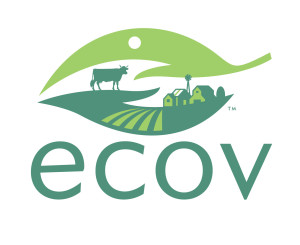
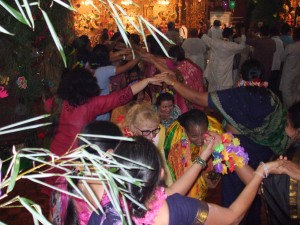
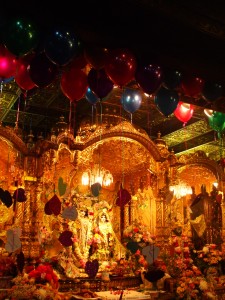
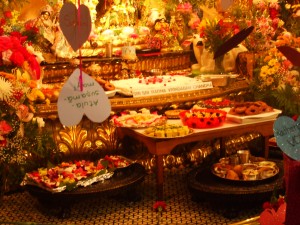
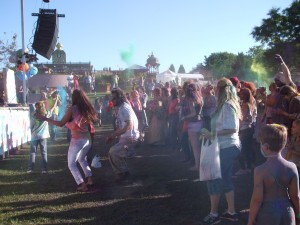
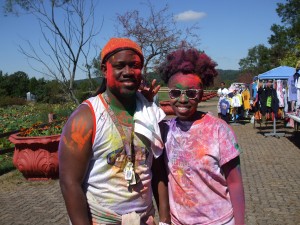
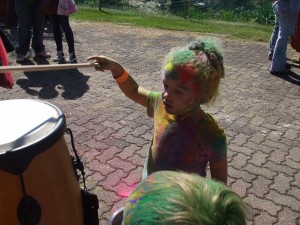
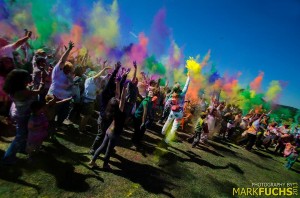
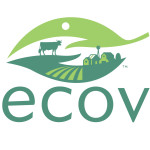
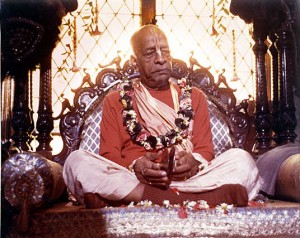
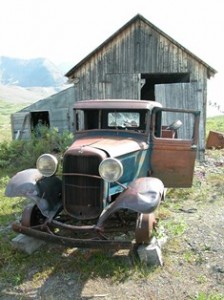
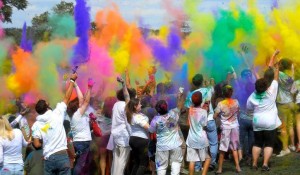




Recent Comments